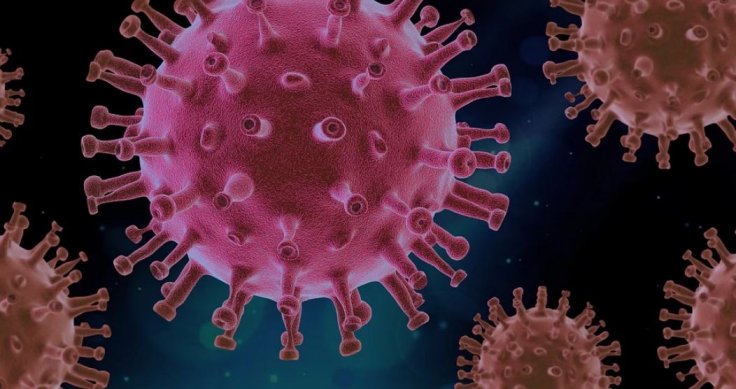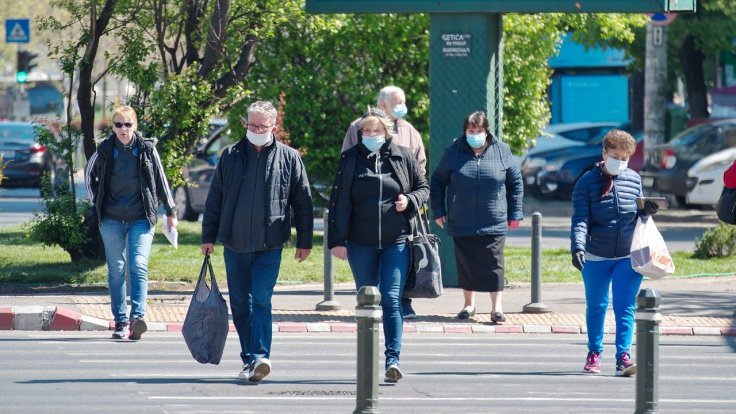Since the beginning of the novel Coronavirus outbreak, the virus has mutated nearly 4,000 times. The mutations are natural and occur in all living beings like viruses. The mutations help the virus infect more easily and survive. But a new strain of the SARS-CoV-2, found in the U.K., has everyone worried as it is 70 percent more transmissible, prompting the country to order a strict lockdown.
Many countries including the Netherlands, Germany, France and Italy have banned ban passenger flights from the U.K. Around 120 other nations have a strict screening of travelers from the U.K. in place besides mandating negative Coronavirus test. But back in the U.S., daily six flights from the U.K. are carrying hundreds of passengers into the JFK International airport, New York alone every day without any screening and quarantine protocols.
This is putting the country in a precarious position — once again — amid surging cases of the virus. The U.S. has reported on average 237,000 cases daily and over 2,500 deaths in the last seven days. And a new highly transmissible strain could further overwhelm the hospitals that are already stretched. New York Governor Andrew Cuomo has urged the Federal Government to put strict screening in place if a ban is not possible.

"Right now, this variant in the UK is getting on a plane and flying to JFK. Literally, six flights a day. And all it takes is one person," Cuomo said of the possible spread of the new strain in the U.S.
Is US Making Another Mistake?
However, despite early warnings in the U.K. and other countries, the U.S. has decided not to do anything right now. The U.S. Assistant Secretary for Health, Admiral Brett Giroir, said there was no need to be concerned. Instead of travel restrictions and other measures, Giroir said the agency would "continue to watch" the spread in the U.K.
"Viruses mutate. We've seen almost 4,000 different mutations among this virus. There is no indication that the mutation right now that they're talking about is overcoming England. It's up to 20 percent of cases in one county. Aside from that, it is very low," Giroir told ABC News. "I don't think there should be any reason for alarm right now."

Could this be another fatal error in the Trump Administration's handling of the virus? The history doesn't favor the administration. Despite issuing travel restrictions on January 31, 2020, the Trump administration didn't ban travel to and from China until June 16. During this period, over 300,000 passengers traveled back and forth to China, not helping to curb the spread of the virus. As a result, the U.S. is still suffering and has become the worst-hit nation with nearly 18 million cases and more than 318,000 deaths so far.
"To me, this is reprehensible, because this is what happens in the spring," Cuomo lashed out at the Trump administration. "How many times in life do you have to make the same mistake before you learn?"
Has the New Strain Already Reached US?
The new strain of the Coronavirus was found in the U.K. in September. Hence, it may have already spread to the U.S. But the U.S. health agencies have not reported any cases of the new strain yet. However, as people are celebrating the Christmas holidays and attending indoor gatherings, the spread of the virus could surge once again. Cuomo said that the fear of the new strain kept him up last night and urged the feds to impose some sort of restrictions including testing of travelers from the U.K.
"The Port Authority has no authority to ban passengers, health monitor passengers. It's federal. Doing nothing is negligent. It's grossly negligent," Cuomo added.
While the federal government has decided against doing anything to treat the new strain, at Walter Reed Military Medical Center, Maryland, scientists have begun examining the genome sequence to understand if the vaccines will be still effective against it. However, so far, there is no evidence to suggest that it would render existing vaccines ineffective.
The working theory is that without any drastic mutation that could change the virus' delivery pattern, vaccines that are already being distributed should be effective. "Very importantly, we have not seen a single mutation yet that would make it evade the vaccine. The vaccines should continue to work very robustly against all of these strains," Giroir said.









